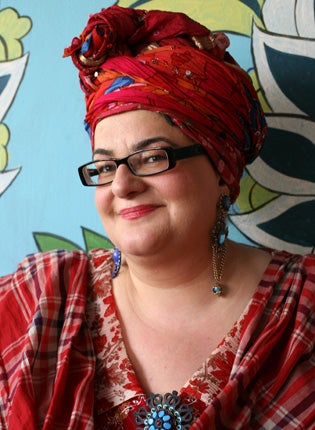How a deprived childhood leaves its mark on the brain

When "Mr Mason" was 14, he and his drug addict mother burgled a house and stabbed the owner's dog to death.
Since then he has put his stepfather in a coma and been charged with a double shooting, but escaped from jail before the case could come to trial.
Mr Mason is among the most violent and disturbed children in Britain – regarded by the public as antisocial and feral. But now Britain's neuroscientists are to study the brains of children like him in an attempt to prove that, rather than simply being "bad", the wiring of these children's brains has been affected by their abuse or neglect as toddlers.
The £1.6m research project commissioned by Kids Company, the children's charity, hopes to establish that over-exposure to fright hormones damages children's brain development and leaves them prone to violent outbursts and unable to calm themselves.
The ambitious project, involving academics from the Institute of Psychiatry, University College London, the Anna Freud Centre, University of Oxford and the Tavistock Clinic, will use brain scans to show which bits of troubled children's brains are overactive and which are under-used. It will also examine the impact of providing surrogate parenting and loving care to children who have been neglected to see if children's brains can adapt to make them less prone to violence.
The charity hopes the research will lead to a shift in the way vulnerable children are supported. They have launched a massive fundraising campaign to invite the public to each donate £5 to buy a virtual neuron in a one-million neuron virtual brain.
Camila Batmanghelidjh, the chief executive of Kids Company, commissioned the research after noticing that many of the most troubled young people actually calmed themselves by committing violent acts. She believes that this paradoxical effect may be a learnt pattern of behaviour which children adopt to help them deal with their own experiences as victims of violence.
Ms Batmanghelidjh said: "Most of us are only programmed to be frightened for short periods without getting some relief. But the 1.5 million children who are abused and neglected every year in the UK are actually being frightened chronically without rest or relief. The consequence is often disturbed behaviours and violence.
"If the maltreatment of children is altering their developmental pathways then we are not dealing with children who are morally flawed. The public perception is that these children are just like anyone else until they come to the point of doing something bad. Then the public decides these children have made a thought-through decision, when the vast majority will not have thought at all – their violence was almost instinctive."
"At the moment, the most violent children are described as criminals and dealt with in custody. But custody has a 80 per cent reoffending rate – the system is not working. The moral difficulty I have is that the punishment is carried by the child for what is an adverse environment created by adults. Because we are so ready to make moral judgments about these children we have not risen to the point of finding a meaningful solution."
She argues that allowances should be made for these children, and that troubled children's complex emotional deficiencies can be addressed by applying the care and warmth that has previously been missing in their lives. Neurological research suggests that the human brain can develop a "soothing repertoire" until it is about 27 years old. That's what Kids Company sets out to do by providing intensive support for 14,000 children and young people through its centres and its work in 38 schools. It believes radical action is required to disrupt the cycle of abuse from affecting society.
Professor Peter Fonagy, chief executive of the Anna Freud Centre and head of the Department of Clinical Educational and Health Psychology at University College London, who will lead part of the research, said: "The problem is immense. I want to work with Kids Company to try and help them identify what it is they can do more of that will make the precious resources they have go further."
Neuroscience has played an increasingly influential role in public policy-making. Iain Duncan Smith, the Work and Pensions Secretary who formulated much Tory social policy, has championed the link between childhood neglect and its effects on the development of children's brains.
The Centre for Social Justice, the think tank set up by Mr Duncan Smith, argued the need for early intervention in troubled children's lives, warning of the damage being done to their brain development by their neglectful upbringings.
But Professor Raymond Tallis, the philosopher and former doctor, is sceptical. He said: "I do not think brain scans will add anything to what we already know. The trouble is that that leads to a general sort of claim that 'My brain made me do it'. The neuro-mitigation of blame has to be treated with suspicion. I think compassion comes from understanding someone's background. I don't think we need to see someone's brain scan to do that."
The effects of neglect on the brain
On the left is an image from a healthy three-year-old. The image on the right is from a three-year-old who suffered severe sensory deprivation with minimal exposure to language, touch and social interactions. This child's brain is smaller, has enlarged ventricles [holes in the centre of the brain] and shows signs of cortical atrophy – shrinkage of the cortex, the outer layer of the brain. The brain grows in size and complexity in response to the quantity and quality of sensory experience.
Join our commenting forum
Join thought-provoking conversations, follow other Independent readers and see their replies
Comments
Bookmark popover
Removed from bookmarks